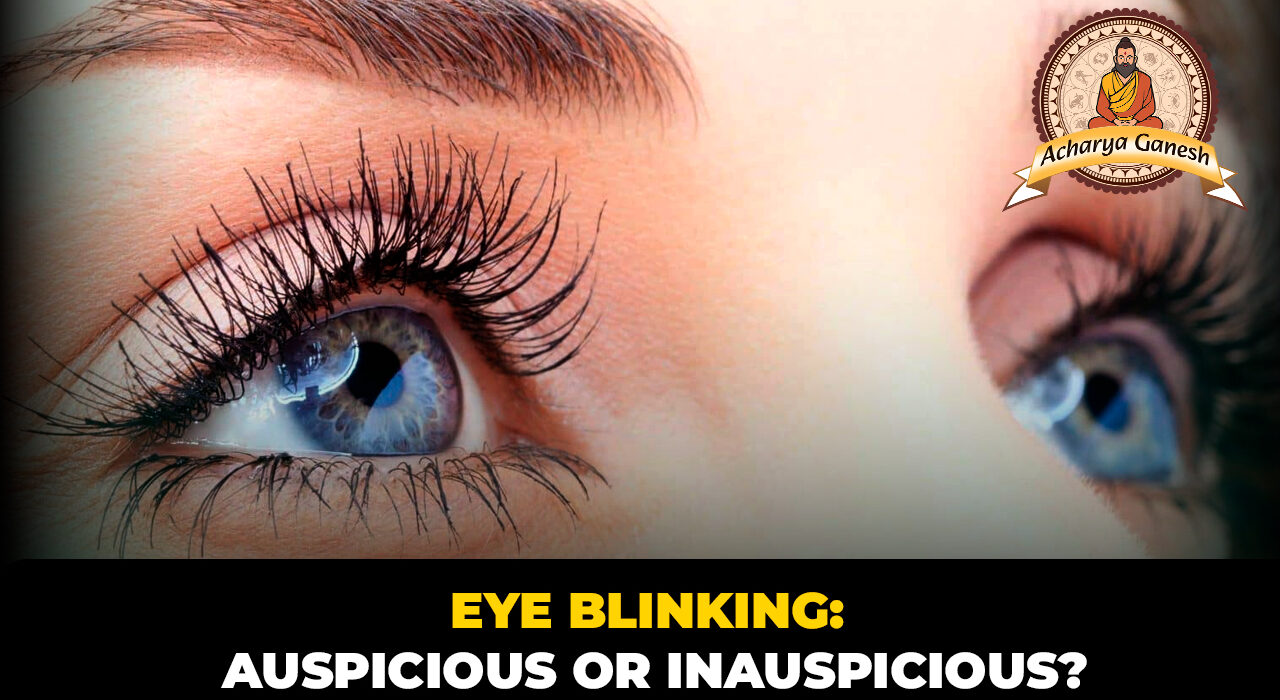The Science and Superstition Behind Eye Blinking: What You Need to Know

Introduction
Eye blinking is a natural bodily function that most of us rarely think about. However, this simple act has sparked curiosity and debate for centuries. From scientific explanations to astrological interpretations, eye blinking has been the subject of much discussion. In this article, we’ll explore the science behind eye blinking and delve into the age-old question: Is eye blinking auspicious or inauspicious?
The Science of Eye Blinking
Eye blinking is an essential physiological process that helps keep our eyes healthy and functioning properly. On average, humans blink about 15-20 times per minute, though this can vary depending on factors such as concentration, environmental conditions, and individual differences.
The primary functions of eye blinking include:
- Lubricating the eyes: Blinking spreads tears across the surface of the eye, keeping it moist and preventing dryness.
- Protecting the eyes: Blinking helps remove dust, debris, and other foreign particles from the eye’s surface.
- Giving the brain a micro-break: Recent studies suggest that blinking may provide brief mental breaks, allowing the brain to process information more effectively.
Eye Blinking: Auspicious or Inauspicious?
The question of whether eye blinking is auspicious or inauspicious has been debated in various cultures for centuries. While science provides a clear explanation for the physical necessity of blinking, many people still associate this involuntary action with superstitions and beliefs about good or bad luck.
In some cultures, the timing and location of eye twitches or blinks are thought to predict future events or indicate the arrival of good or bad news. For example:
- In India, a twitching left eye is often considered auspicious for women and inauspicious for men, while the opposite is true for the right eye.
- In Chinese culture, an eye twitch in the left eye is believed to bring good luck, while a twitch in the right eye may signal misfortune.
It’s important to note that these beliefs vary widely across different regions and cultures, and there is no scientific evidence to support them.
Astrological Perspective on Eye Blinking
From an astrological standpoint, some practitioners believe that eye blinking can be influenced by planetary movements and cosmic energies. According to this perspective, the timing and nature of eye blinks may be interpreted as messages from the universe or indications of future events.
Some astrological interpretations of eye blinking include:
1. Planetary influences: Certain planets are thought to govern different parts of the body, including the eyes. For example, the Sun is often associated with the right eye, while the Moon is linked to the left eye.
2. Zodiac signs: Some astrologers believe that the significance of eye blinking can vary depending on a person’s zodiac sign or birth chart.
3. Timing: The time of day or specific dates when eye blinking occurs may be considered significant in astrological interpretations.
While these astrological perspectives on eye blinking are interesting to explore, it’s important to approach them with a critical mindset and remember that they are not based on scientific evidence.
Common Myths and Superstitions
Eye blinking has inspired numerous myths and superstitions around the world. Here are some common beliefs:
1. Talking about someone: In some cultures, it’s believed that if your right eye twitches, someone is speaking well of you, while a left eye twitch means someone is speaking ill of you.
2. Financial fortune: Some believe that a twitching right eye signals incoming money, while a left eye twitch may indicate financial loss.
3. Travel predictions: In certain traditions, eye twitches are thought to predict upcoming travels or visits from loved ones.
4. Romance and relationships: Some superstitions link eye blinking to romantic prospects or changes in relationships.
5. Health omens: Certain eye-blinking patterns are sometimes interpreted as signs of impending illness or recovery.
While these beliefs can be entertaining to consider, it’s crucial to remember that they are not supported by scientific evidence and should not be relied upon for decision-making or health concerns.
Medical Conditions Related to Eye Blinking
While most eye blinking is normal and harmless, excessive or irregular blinking can sometimes indicate underlying medical conditions. Some conditions associated with abnormal eye blinking include:
- Blepharospasm: A condition characterized by involuntary, forceful closure of the eyelids.
- Dry eye syndrome: Can lead to increased blinking as the eyes try to maintain moisture.
- Eye infections: Various eye infections may cause irritation and increased blinking.
- Tourette syndrome: May involve tics that affect eye blinking.
- Neurological disorders: Certain neurological conditions can impact eye movement and blinking patterns.
If you’re concerned about your eye blinking frequency or pattern, it’s best to consult with an eye care professional or healthcare provider for a proper evaluation.
FAQs About Eye Blinking
Q1: How often should I blink?
Ans: On average, humans blink 15-20 times per minute, but this can vary based on factors like environment and activity.
Q2: Can I train myself to blink less?
Ans: While it’s possible to consciously reduce blinking temporarily, it’s not recommended as regular blinking is essential for eye health.
Q3: Is it normal for one eye to blink more than the other?
Ans: Occasional asymmetry in blinking is normal, but persistent differences should be evaluated by an eye care professional.
Q4: Can eye blinking predict the future?
A: There is no scientific evidence to support the idea that eye blinking can predict future events.
Q5: Why do I blink more when I’m tired?
Ans: Fatigue can cause increased blinking as your eyes work harder to stay lubricated and focused.
Q6: Are there exercises to improve eye blinking?
Ans: While specific blinking exercises aren’t typically necessary, practicing good eye hygiene and taking regular screen breaks can help maintain healthy blinking patterns.
Conclusion
Eye blinking is a fascinating subject that bridges the gap between science and superstition. While the physiological importance of blinking is well-established, cultural beliefs and astrological interpretations continue to add an element of mystery to this simple act. Whether you view eye blinking as a mere bodily function or a potential sign from the universe, it’s clear that this involuntary action plays a crucial role in our daily lives and health.
As we’ve explored in this article, it’s important to approach the topic of eye blinking with a balanced perspective. While it’s interesting to learn about various cultural beliefs and astrological interpretations, it’s equally important to understand the scientific basis of eye blinking and to seek medical advice for any concerns related to eye health.









